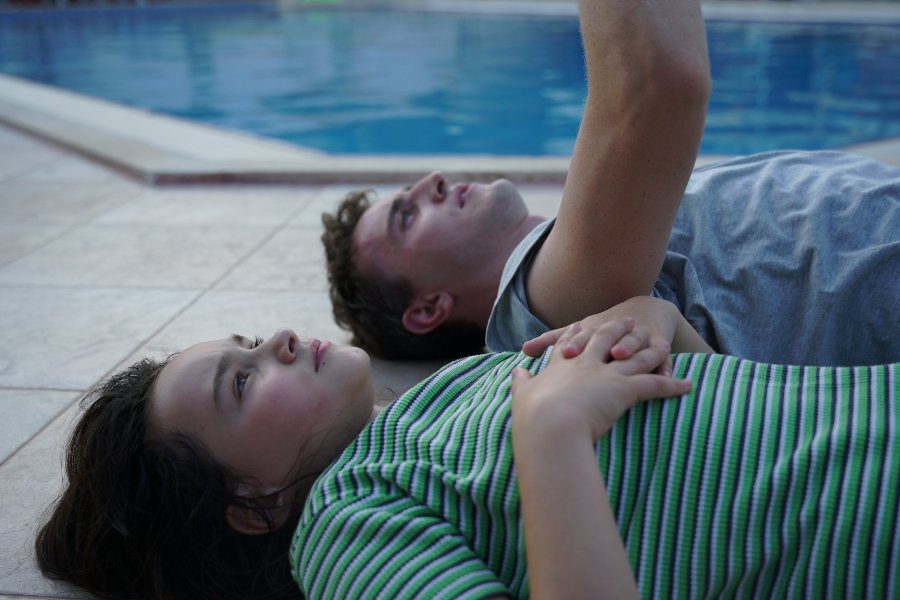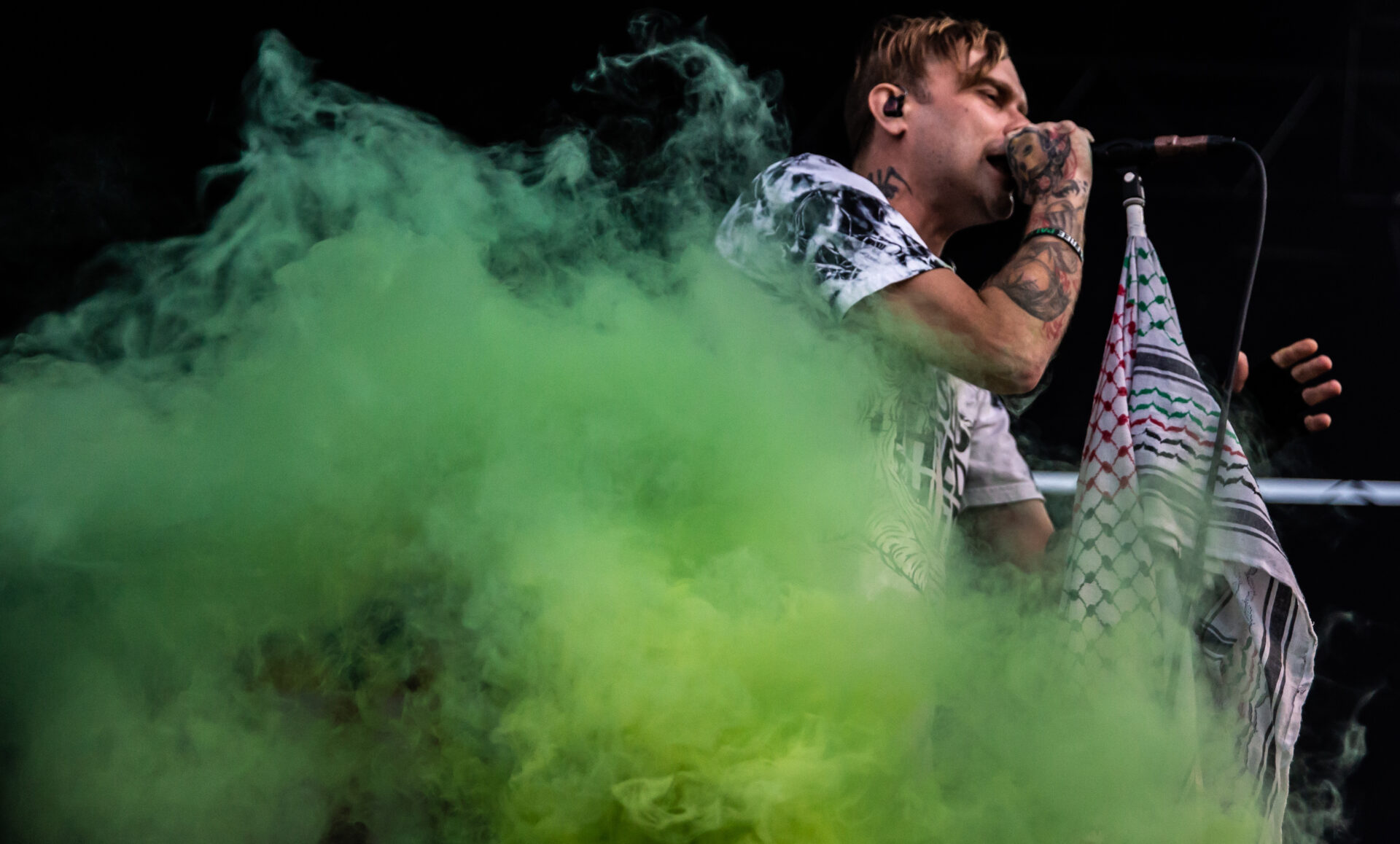This review is a part of Substream’s coverage of the 60th edition of New York Film Festival.
When referring to the memories of our youth, we always try to elevate the best parts of it. Think back to your summer vacations — it’s never about the reading assignments we push off to the last minute. It might be the times you’ve spent with your friends or the yearly trip you’ve taken with family. The same could be said about how we view our parents. As we’re growing up, the veil comes down, and a fuller picture forms that the people who raised us aren’t exactly impervious to all of life’s ebbs as we may have thought.
Writer/director Charlotte Wells’s beautiful and often heart-wrenching debut, Aftersun, is about a daughter trying to make the puzzle of her father into a clearer picture. One of the first scenes the audience sees is from a camcorder recording of 11-year-old Sophie (Frankie Corio) talking to her father Calum (Paul Mescal), asking who he wanted to be when he was her age. It seems like an innocent, playful question, but it’s one of deep introspection that threads a narrative throughout the film. Calum and Sophie go to a Turkish hotel for a nice summer getaway before Sophie returns to school.
While Aftersun‘s story mainly concerns itself with a certain period, there’s an urgency to it. For one, Calum and Sophie’s mother are no longer together, thus pushing Calum to make this vacation as memorable as possible. They both go diving, try to have some laughs at the pool, and have an almost sibling-like dynamic in how they converse. A teenager comes up to Calum and mistakes Sophie for his sister. Mescal and Corio’s acting plays off each other so well that it feels as if they are related. Some fears come with being a young parent. Are you doing everything right? Have you lived long enough to impart security and wisdom to your child? Wells leaves you a paintbrush to fill in strokes of color she’s intentionally left out. We know little about Calum’s relationship with his ex-partner outside a phone call at a telephone booth where he seems pleasant. Mostly, the audience witnesses the festering unhappiness growing inside him.
That comes in quiet moments where Calum and Sophie slowly get pulled away from each other naturally. Sophie explores her curiosity about what it means to grow up hanging out with the older kids at the hotel. While that’s happening, Calum has moments where he comes apart and languishes in this accumulated pain. This is where the tranquility and sadness of Aftersun meet. In random spots in the film, older Sophie looks through older tapes to fill in the blind spots of the man she calls her father. It isn’t easy to decipher, and that’s the point. Outward appearances can be deceiving, and memories can be a marriage between facts and rosy outlooks of what we wish happened.
Calum fights his hardest to keep his poker face together to enjoy this time with his daughter. Sophie’s fearlessness shrinks when she does karaoke alone. For every time both characters lose themselves dancing to the Macarena (and well-placed use of “Under Pressure”), there is space where Calum and Sophie are left to their own devices to figure things out. During Aftersun, Sophie tells Calum that she’s happy they get to share the same sky, and no matter where they are, they can see the sun together. It’s a beautifully placed line about a daughter and father having to live in two different places, but family in general. We keep photographs, videos, and other time capsules to freeze moments in time — frankly, because time itself is unstable. Life becomes different when you get older and sometimes takes away those you love the most.
Aftersun pushes you to want to solve its questions while imploring you to savor the moment. It’s a delicate dance life does on its own. There will be points where you’ll look to the past to fill in the blanks, as older Sophie does. However, in doing so, the beauty of certain moments will temporarily dull the sadness.
Photo Credit: A24













